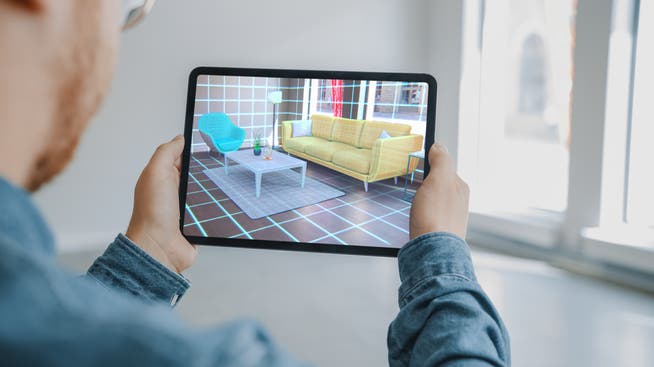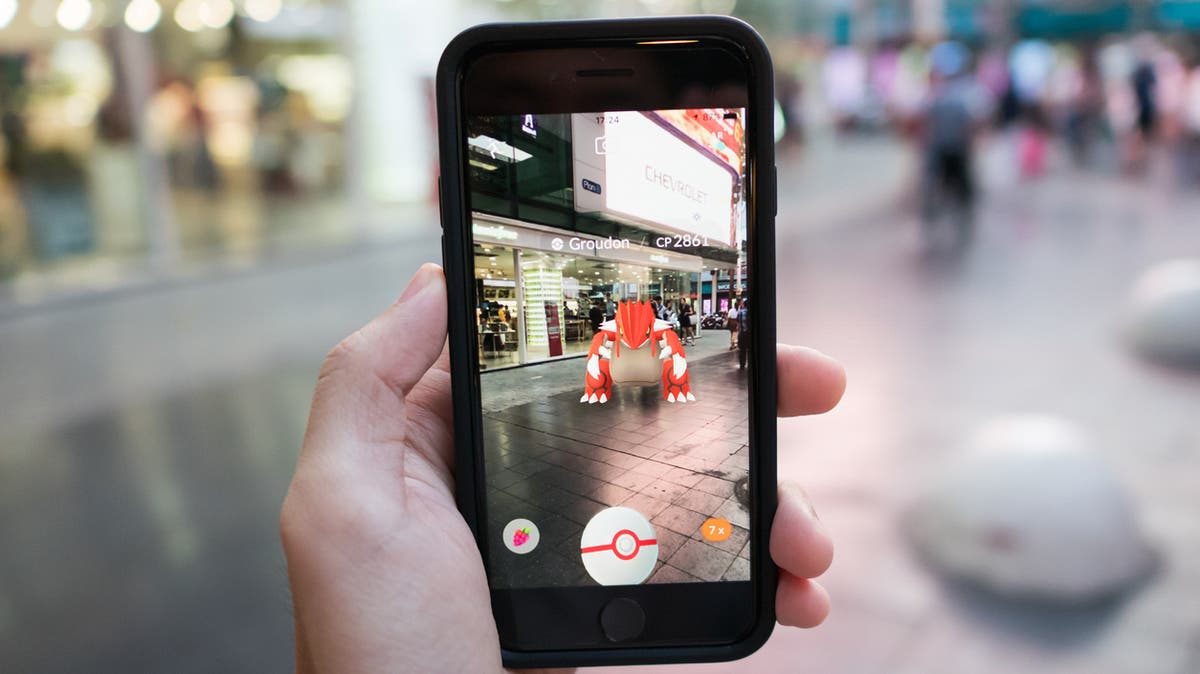University of Lucerne
Try wearing sunglasses and find mountain peaks: augmented reality is growing in popularity in Switzerland
A study by the University of Lucerne shows that half of the Swiss population is using augmented reality apps – sometimes without even knowing it.

One of the most popular AR apps: Pokémon Go.
It’s been a long time since Pokémon Go mania broke out in Lucerne in the summer of 2016. For many, the popular mobile game was their first interaction with augmented reality (AR). In the meantime, not only are many other applications using the technology, but acceptance has increased as well. According to the “Swiss Augmented Reality Scale”, which was developed under the supervision of Professor D. Recently published by Reto Hofstetter (Professor of Digital Marketing at the University of Lucerne), nearly half of the Swiss population have already used augmented reality apps once.
One of them is the “Swiss Augmented Reality Scale” Study from the University of Lucerne (Institute of Marketing and Analytics), which was implemented in cooperation with the software agency for augmented reality applications Bitforge and SBB. It is the first study of its kind in Switzerland. Previous studies have always focused on the USA, explains David Finken, a doctoral student and staff member at the University’s Institute for Marketing and Analytics and one of the study’s co-authors: “Our study shows for the first time how AR applications are being accepted in Switzerland.”
Face filters are especially popular
For this purpose, 1014 people were interviewed on this topic last November. The result: every second person has used an AR app at some point. Satisfaction is high, too: 67 percent are satisfied with existing augmented reality apps. But: Only 46 percent of users know that the app they’re using is augmented reality. “Many users don’t realize they are using augmented reality. But that doesn’t play a major role for them either, the benefit or whether they enjoy it is more of a focus for them, Finken explains. The average user of augmented reality is less surprising: compared to non-users of augmented reality, these are younger, more likely to have a college degree and more inclined to new technologies.
Popular applications are face filters on social media, virtual display of mountain names, indoor distance measurements or product virtualization. The latter is becoming increasingly popular: more than a quarter of users of augmented reality applications have already used them for virtual display of products, for example to display furniture in a room or to try on sunglasses. Twenty-one percent of these people said they made a purchase after viewing the product virtually – but causation can’t be said.

An example of an AR application: Furniture can be displayed in your home.
Respondents who already have experience with such apps are by no means optimistic: 39 percent stated that experiencing augmented reality could replace visiting stores. Bad news for an already struggling retail business? No, Finken says. “Augmented reality can also open up new opportunities for retailing office supplies,” he says. For example, with the so-called “magic mirrors”, which you can use to change the color of a piece of clothing with the push of a button, for example. You can save space by using such a mirror and experimenting with different sizes instead of the entire color palette.
Augmented reality glasses are still a rarity
It is still too early to assess the potential of augmented reality in Switzerland. A high level of acceptance is a good sign, but the technology is still in its infancy, says Finken. He also sees future potential in the professional and training field, he says. For example, learners can use an AR app to see what’s inside the device in order to better understand how it works. Augmented reality glasses are also a problem. While most augmented reality applications are currently used on smartphones and tablets, augmented reality glasses could play an even greater role in the future. Today, about a third of those surveyed can imagine using such glasses in everyday life in the future.
There are concerns about data protection, for example. However, nothing has been asked about this specifically — this may be a topic for the next scale, Fink says. It is planned that the study will be repeated at regular intervals.
The results of the study will be presented on the 1st of July at 4 pm. Due to current restrictions, the event will take place as part of a video conference via Zoom. Sign Up Here. Can the full report Here can be obtained.

“Certified gamer. Problem solver. Internet enthusiast. Twitter scholar. Infuriatingly humble alcohol geek. Tv guru.”





